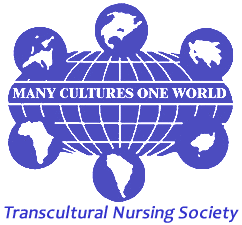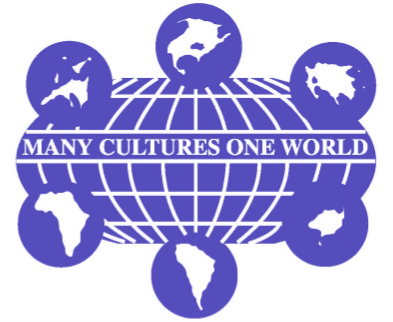 Transcultural Nursing Society(TCNS) Position Statement on Human Rights
Transcultural Nursing Society(TCNS) Position Statement on Human Rights
Introduction
The enjoyment of the highest attainable standard of health is one of the fundamental rights of every human being..." - Preamble to the World Health Organization Constitution
An unprecedented humanitarian crisis in health and health care is sweeping across the world today. For billions of people health is as elusive as peace and economic security. Poverty is stifling human dignity, hunger is weakening physical potential, and violence is destroying life. Growing inequities in human and material resource distribution perpetuate the crisis. People of all cultures, communities and economic strata are experiencing the pain. Fueled by lack of cultural understanding, populations live in fear of each other exacerbating insidious forms of intolerance and discrimination. As such, there are huge inequities in health status and access to health care services throughout the world. Inequities span a continuum of limited or no access to care to blatant cultural clashes between providers and clients. Increasingly, comprehensive and holistic approaches to health and health care are lacking. Cultural and social factors influencing health, healing, caring and well being are often overlooked or ignored throughout care systems. We face a global challenge of inadequate distribution of human and material resources to provide health care.
Currently, there are inadequate numbers of health care providers worldwide who are prepared to provide culturally congruent care. Many providers neither recognize nor acknowledge the existence of the variety of healing and caring paradigms that are widely valued and used. In addition, healthcare providers are frequently unwilling or unable to accommodate ways of knowing and healing that do not fit into their own cultural frameworks of knowledge and experience. Instead, they impose practices of care on people that are ineffective or harmful, rather than working collaboratively across paradigms and care systems. Actions related to ethnocentrism, lack of awareness and moral blindness perpetuate and exacerbate healthcare inequities.
The inequities, discrimination and suffering must not continue. Given available resources, health care providers throughout the world have the ability to address and redress the inequities. Nurses, in particular, have the potential to bridge gaps in cultural knowledge about health and caring that will significantly reduce the impact of intolerance, improve access, and decrease health inequities locally and globally. Most of all, collective political action is needed to channel resources into education and preparation of nurses and other health care providers in order to systematically address the crisis.
Purpose
The purpose of this paper is to provide evidence that the Transcultural Nursing Society (TCNS) is committed to the rights of all peoples to enjoy their full human potential, including the highest attainable standard of health. The Society was established to safeguard human rights and quality health care through the discovery and implementation of culturally competent care.
TCNS Historical Perspectives on Human Rights
In 1975, the TCNS was established with the philosophical foundation that transcultural nursing is a discipline whose central and dominant focus is human caring. Caring is a universal concept that emerges from and is rooted in the context of diverse cultures. That is, caring is defined by the people themselves. Culturally congruent and competent care results in improved health and well being for people worldwide. The Society upholds the rights of all people to culturally and competent care.
The society strives to accomplish its mission by providing nurses and health care providers with the knowledge base necessary to ensure cultural competence in practice, education, research, and administration. Throughout its history, the Society has advanced transcultural nursing as a discipline that is grounded in theory and research. The Society’s current focus is to bring the theory and research findings from transcultural nursing into practice, focusing on global health policy and decision making related to the health, well-being, and human rights of all people.
The theoretical tenets of transcultural nursing guide nurses in providing meaningful and appropriate care to people of diverse and similar cultures. Transcultural nurses are academically prepared to serve many cultures by respecting the worth, dignity and rights of individuals, families, groups and communities. Most important, transcultural nurses are prepared to assess the cultural care needs of people and to skillfully integrate the values, beliefs and lifeways of cultures for the health and well-being of those served as a human rights imperative. The transcultural nurse shows compassion and humanistic caring to alleviate cultural conflicts, cultural imposition, and cultural pain to people of diverse cultures. Grounded in theoretical knowledge, the transcultural nurse provides creative ways to maintain, accommodate, and/or restructure care in meaningful and beneficial ways for people of the world.
TCNS members believe that nurses and other health care practitioners should provide and maintain humanistic care for people worldwide. Transcultural healthcare practitioners are focused on preserving and maintaining the human rights of all people. These human rights should not be denied, neglected or violated and deserve protection from acts of injustice. Transcultural healthcare practitioners should influence healthcare policy and practices by individuals and institutions to enhance the care for people worldwide. Transcultural care upholds the universal human right to cultural justice.
Statement of Human Rights
Regardless of race, ethnicity, national origin, religious and philosophical beliefs, gender, sexual orientation, cultural values, age, and other diversities, people have the following universal human rights:
- Access to quality care including qualified healthcare professionals, organizations and resources.
- Access to culturally and linguistically competent healthcare providers
- Respectful care with recognition for personal dignity, privacy and confidentiality
- Informed participation in one’s own healthcare
- Involvement of family members and significant others in healthcare delivery and decision making if desired by the care recipient
- Accept or refuse care and negotiate with healthcare providers to achieve culturally congruent care
- Freedom from healthcare treatments that involve coercion, bribery and illicit activities that place one’s well-being at risk.
- Receive care in an environment in which physical, psychological, spiritual and cultural safety is assured for the person and his/her family, and significant others
- Receive care without putting one’s self or loved ones in jeopardy or harm’s way
Transcultural Nursing Society Strategies for Human Rights Agenda
The Society has identified the following strategies to shape the TCNS human rights agenda for the next decade:
- Develop and use the substantive body of knowledge of the discipline of transcultural nursing
- Use a sound knowledge base for nurses to discover and provide culturally competent care through research and educational programs
- Follow the TCNS mission statement to provide quality of culturally congruent and competent care that results in improved health and well being for people worldwide.
- Establish and disseminate cultural competency standards for health care professionals and institutions to facilitate the promotion of equitable and ethical policies and practices
- Establish and market a new certification process for nurses and other health care professionals that ensures competency in provision of culturally competent care.
- Market the certification program to institutions, organizations, clinics, and academic health care programs worldwide to provide a global commitment to culturally competent care.
- Emphasize a focused human rights theme within the TCNS to guide education, research, practice and administration
- Explore the process of recognition by the United Nations as a human rights organization, working to improve health conditions and culturally competent care worldwide.
- Become active advocates for changes in healthcare delivery and social policies related to equitable access to healthcare and the delivery of culturally competent care worldwide.
The Transcultural Nursing Society members are committed to advocating social change for culturally competent care worldwide. Human rights advocacy is firmly embedded in the philosophy and the Society’s Strategic Plans. The Society remains committed to the fulfillment of human rights for people of all cultures worldwide.
Human Rights Task Force
Margaret Andrews
Madeleine Leininger
Cheryl Leuning
Patti Ludwig-Beymer
June Miller
Dula Pacquiao
Rena Papadopoulos
Reviewed and endorsed by the Transcultural Nursing Society Board of Trustees March 2017.
The Transcultural Nursing Society remains committed to the values and beliefs reflected in the TCNS Human Rights Paper.
